Geo-materials
can be largely divided into rocks and soils. Rocks are
more rigid than soils and their strength characteristics
depend on the degree of weathering. The behavioral characteristics
of rocks are divided by the fact that the change in stiffness
due to stress is negligible. In particular, the shear
stress and tensile stress of rocks have a larger effect
on the overall behavioral characteristic than soils. Hoek
and Brown (1980) suggested the concept of an equivalent
continuum to define the stress decrease phenomenon in
jointed rock mass failure. A yield function was proposed
to distinguish between intact rock and broken rock and
when the rock failure was defined by this function, certain
parameter values that define the function could be decreased
to simulate the stress decrease phenomenon. This method
defines the unconfined compressive strength that could
not be considered in the existing Mohr-Coulomb method
and allows accurate and simple representation of rock
behavior, making it a widely used analysis method even
today. The shear strength of rocks can be expressed using
the Mohr-Coulomb yield criterion and Hoek-Brown strength
parameters within a certain stress range can be used to
predict the cohesion and friction angle of the Mohr-Coulomb
model.
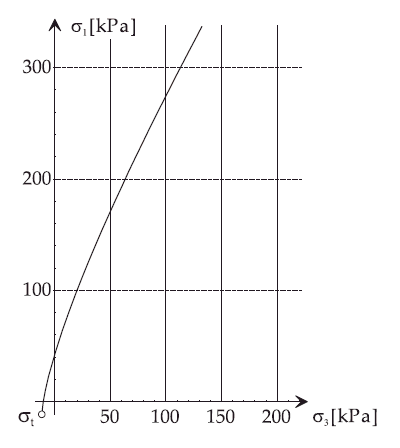
<Hoek-Brown yield criterion>
The main nonlinear parameters of the Hoek-Brown criterion
are as follows.
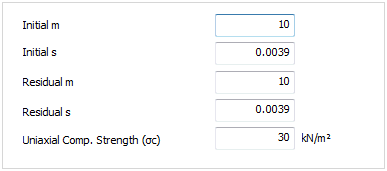
[Initial m,s value]
The initial m,s values are 1 of the empirical Hoek-Brown
material constants for Intact rocks that classify rocks
according to their grade (type). General m values are
shown in the table below.
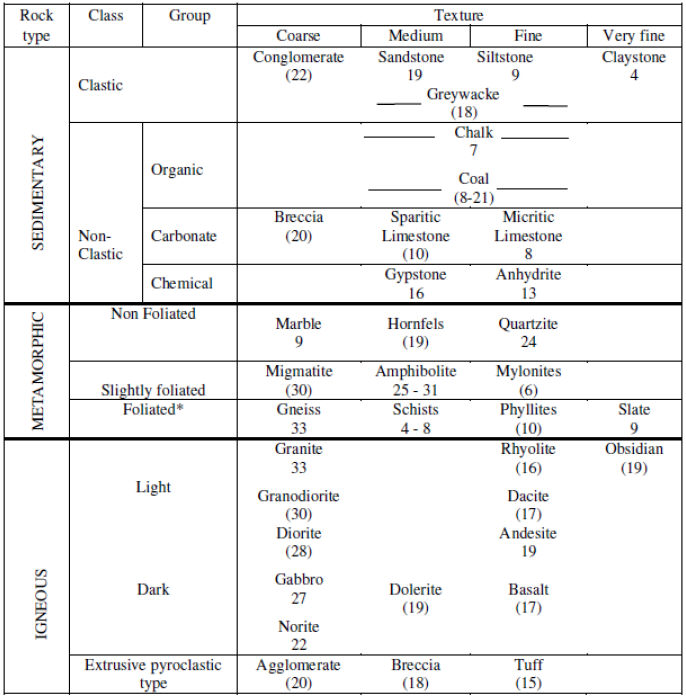
<Hoek-Brown material constant
mi>

The s constant can be calculated from the GSI (Geological
Strength Index) when the rock is intact and has a value
of '1'. The GSI according to rock grade is shown in the
table below and the value can be generally predicted by
calculating the rock classification results (RMR, RQD).
The s calculated from the GSI is as follows.

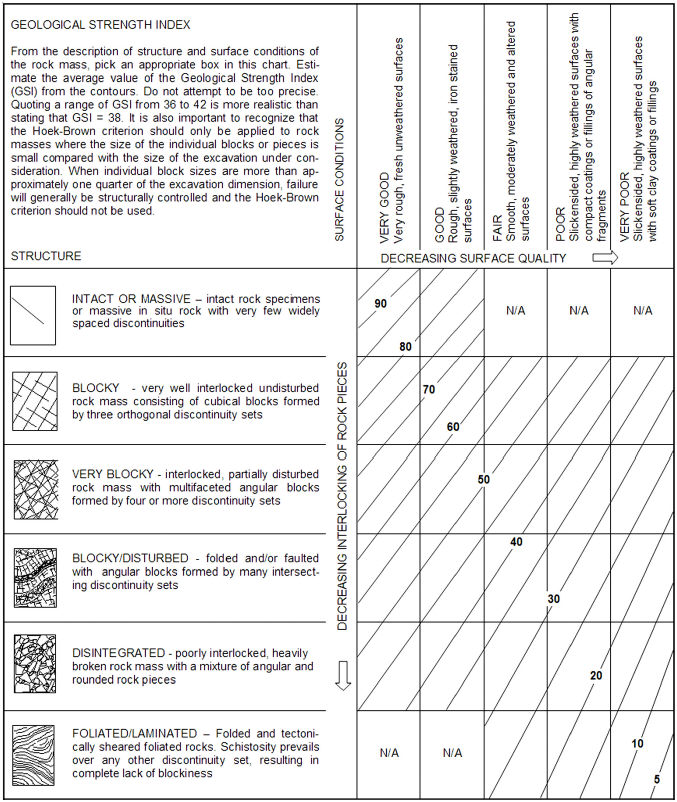
<GSI (Hoek(1999)>
The m,s relationship from the GSI assumed by a=0.5 from
the Hoek-Brown model is as follows.
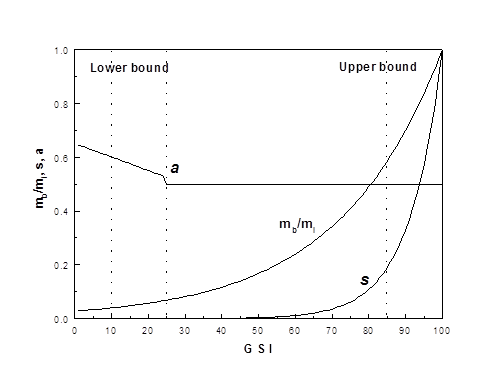
<Relationship between GSI and
m,s>
[Uniaxial Compressive Strength]
Input the Uniaxial compressive strength test results
for Intact Rock. The general numerical value for rock
grade is as follows.
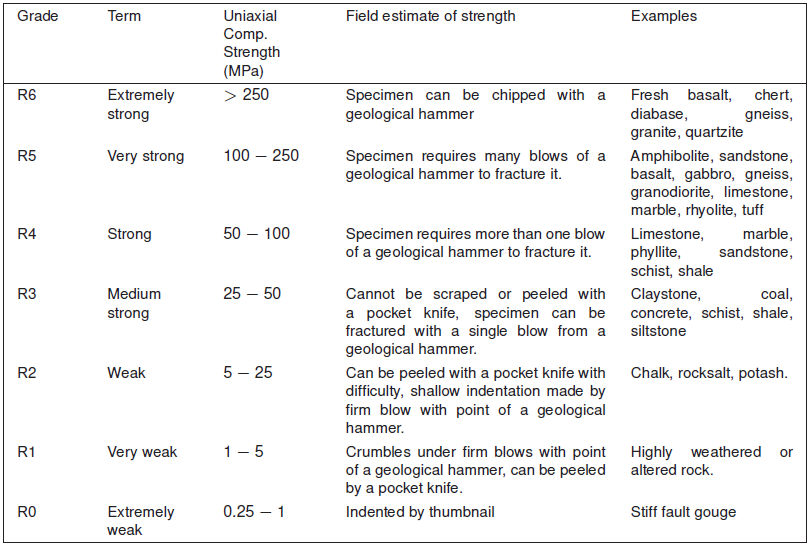
|


